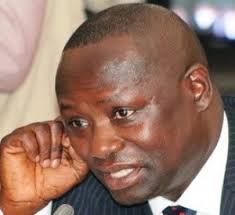 Ghana plans to reduce its public sector wage bill to 35 percent of government revenue in three years as part of a plan to restore macroeconomic stability, according to one of its deputy finance ministers.
Ghana plans to reduce its public sector wage bill to 35 percent of government revenue in three years as part of a plan to restore macroeconomic stability, according to one of its deputy finance ministers.
As recently as 2012, the wage bill accounted for around 70 percent of Ghana’s government revenues. The wage bill is the single biggest contributor to an imbalance between government spending and revenue in Ghana, a country that produces cocoa, gold and oil but is struggling with rising inflation, a falling currency and a stubborn budget deficit.
Those fiscal problems have taken the shine off Ghana, a country until recently seen as one of Africa’s economic stars.
As a result, the government is under pressure to announce a new package of economic reforms amid calls for it to turn to the International Monetary Fund for a financial assistance programme.
“We are vigorously pursuing an action plan to make the wage bill sustainable, and the goal is to narrow it down to not more than 35 percent (of revenue) by 2017,” Cassiel Ato Forson told Reuters late on Monday.
“We are in negotiation with organised labour and the objective is to lock in wage changes for a longer period,” Forson said on the sidelines of an African economic conference.
In addition, the government is scaling-up auditing the public sector payroll and has also commissioned vetting of the workforce to identify employees who can be easily retrenched, he said.
The government placed a moratorium on public sector salary increases this year. Instead, it offered a 10 percent cost of living allowance covering May to December.
Ghana’s 2013 budget deficit was 10.1 percent of gross domestic product, above the government’s 8.5 percent target. The deficit was recently revised down from 10.8 percent following a revision of national accounts in April.
The West African state plans to issue a 10-year Eurobond to raise up to US$1.5billion in July for debt restructuring and to finance development programmes.
Asked about a possible call to the IMF for assistance, Forson said: “No decision has been taken on that (IMF assistance), but it doesn’t mean we have ruled it out. It remains an option.”





